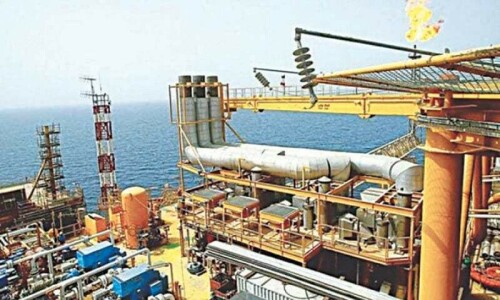‘RICKSHAWALLA’ is an appellation that inevitably brings to mind the image of a peddling or auto-accelerating character on a street in a Pakistani or Indian city with passengers perched in a carriage.
Strangely enough, the hottest controversy in Paris last week was over the increasing number of what are known here as ‘bicycle taxis’.
This form of transport was far from anyone’s imagination only five years ago in the city that attracts the highest number of tourists. Today the sight of rickshaws has become as much a reality here as in any Asian town.
Like all radical changes, this traffic shake-up too has its anarchic side. According to daily Le Figaro, of some 500 bicycle taxis currently sprinting in the Parisian streets, fewer than a 100 have been declared to the city authorities.
Other newspapers report that a great majority of illegal ‘rickshawallas’ are from eastern European countries like Yugoslavia or Bulgaria. Their unlawful tariffs vary from 15 to 20 euros for about 15 minutes of travel, not much different from a regular automobile taxi — and in some cases even higher.
“But automobile taxis pollute,” says Bernard Lepère, a 30-year-old Frenchman who has formed his own ‘transport company’ in partnership with his brother Louis. The difference here is that the two brothers have officially registered their enterprise and confine themselves to the Parisian suburb where they live.
“Our clients are mostly elderly or handicapped people going to a hospital or to a training centre,” explains Louis. “We charge four euros for about a kilometre’s drive. That’s affordable to them as they are also partly reimbursed by the social security. On weekends parents often ride with their children, just for fun. Tourists are rare here.”
Is it tiring business to keep peddling the whole day?
Lepère brothers explain both their bicycle taxis are fitted with hybrid motors. About 10 minutes of peddling charges the battery and then a fairly comfortable distance can be covered without any effort at all.
“And no pollution!” reminds Bernard.
The often excessively perturbing practices by some rickshawallas were equally reported by the press. The mayor of the seventh arrondisement, Rashida Dati, in a personal letter to the mayor of Paris complained that bicycle taxis, especially those bringing tourists to the Eiffel Tower, are fitted with loudspeakers playing music at top level in the middle of night.
But a number of groups have already started imposing rules and regulations of their own. According to daily Le Parisian a company ‘Cyclo-Politain’ rents out vehicles to men — and women — rickshaw drivers for 35 euros a day, 180 euros a week or 650 euros a month on the condition that they be brought back to the garage every night so that technicians could check them and replace defective parts.
The newspaper pointed out the fact, often proven with videos or photographs taken on mobile phones, of frequent explosions resulting in flames owing to defective motors fitted on rickshaws by unqualified electricians.
Jean Levergeat, a journalist, says a thorough research over the phenomenon is indispensible. “Once all these shortcomings are resolved, theoretically at least the bicycle taxi revolution will be in accordance with the promise recently made by Ecology Minister Nicolas Hulot that by the year 2040 all petroleum and diesel driven vehicles will be banned from Paris.”
Jean-François Martins, a Paris municipality high official, says: “Bicycle taxis can turn into a real godsend for the city if we succeed in stopping the traffic from becoming an ecological fiasco.”
He adds: “We have already started working on a law project that will allow us to enforce regular bicycle taxi licences, just like car driving permits; this will also enable us to conduct intensive security tests, and why not, issue special number plates to all the future pollution-free vehicles, including electric rickshaws.”
The writer is a journalist based in Paris
Published in Dawn, July 23rd, 2017












































